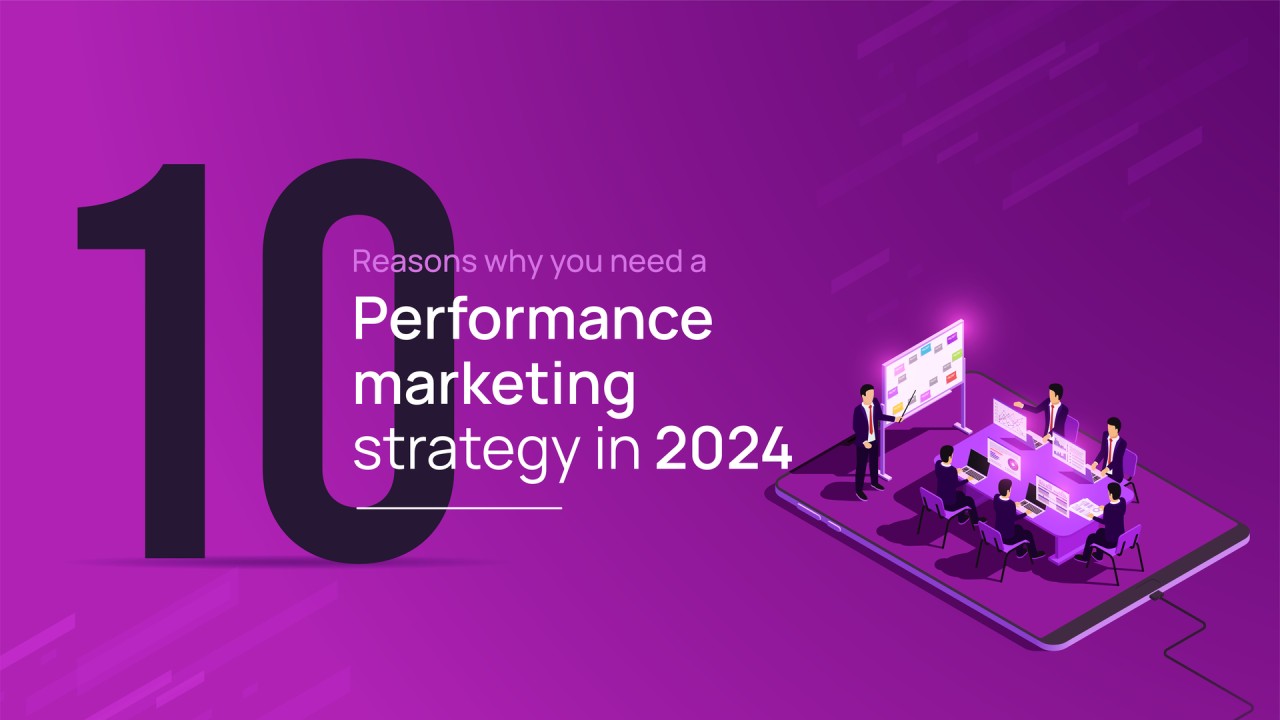Performance marketing has been undergoing significant transformations in recent years, driven by evolving consumer behaviors, technological advancements, and shifts in advertising landscapes. As we delve into 2024, the implications of these changes become increasingly pronounced, urging marketers to adapt their strategies to stay relevant and effective in reaching their target audiences. This article explores the current state of performance marketing, its implications in 2024, and offers actionable strategies for marketers to thrive in this dynamic environment.
Understanding Performance Marketing: Performance marketing revolves around measurable results, where advertisers pay based on specific actions such as clicks, conversions, or acquisitions. Unlike traditional advertising, which focuses on brand exposure, performance marketing emphasizes tangible outcomes, making it highly accountable and ROI-driven. Common channels for performance marketing include search engine marketing (SEM), affiliate marketing, email marketing, and social media advertising.
Implications of 2024:
- Emergence of New Technologies: Technologies such as artificial intelligence (AI), machine learning, and blockchain continue to reshape performance marketing. AI-powered algorithms optimize ad targeting and personalization, while blockchain ensures transparent and secure transactions, mitigating fraud and enhancing trust between advertisers and publishers.
- Privacy Regulations and Consumer Awareness: Heightened privacy regulations, including GDPR and CCPA, along with growing consumer awareness around data privacy, present challenges for performance marketers. Marketers must navigate these regulations while maintaining personalized targeting and complying with consent requirements, necessitating a more transparent and ethical approach to data usage.
- Rise of Omnichannel Marketing: With consumers engaging across multiple touchpoints, from social media to voice assistants, successful performance marketing strategies must embrace omnichannel approaches. Seamlessly integrating data and messaging across channels enables marketers to deliver cohesive and personalized experiences throughout the customer journey, driving higher engagement and conversions.
- Shift Towards First-Party Data: Amidst privacy concerns and limitations on third-party data usage, there’s a growing emphasis on first-party data collection and activation. Marketers are leveraging customer relationship management (CRM) platforms, loyalty programs, and interactive content to gather valuable first-party data, enabling deeper insights and more effective targeting.
- Importance of Content Marketing: Content marketing plays a pivotal role in performance marketing strategies, serving as a means to educate, engage, and persuade audiences. High-quality content not only attracts organic traffic but also fuels other performance channels, such as search and social advertising, amplifying reach and conversions.
Actionable Strategies:
- Invest in AI-Powered Tools: Embrace AI-powered tools and platforms to automate and optimize performance marketing campaigns. Leverage predictive analytics to anticipate customer behavior, personalize messaging, and allocate budgets more efficiently, maximizing ROI.
- Prioritize Data Privacy and Compliance: Implement robust data governance practices to ensure compliance with privacy regulations and foster consumer trust. Obtain explicit consent for data usage, be transparent about data collection practices, and provide opt-out mechanisms to empower users.
- Adopt Omnichannel Attribution Models: Shift towards omnichannel attribution models that attribute conversions accurately across all touchpoints. Utilize advanced analytics and attribution platforms to gain insights into the influence of each channel and optimize budget allocation accordingly.
- Harness the Power of Personalization: Leverage first-party data to deliver personalized experiences across channels. Segment audiences based on behavior, preferences, and demographics, and tailor content and offers to match individual needs and interests, driving higher engagement and conversions.
- Create Compelling Content Experiences: Develop high-quality, relevant content that resonates with your target audience. Invest in multimedia content formats such as videos, interactive infographics, and immersive experiences to captivate and engage users, driving both organic and paid traffic.
- Collaborate with Influencers and Affiliates: Partner with influencers and affiliates to extend your reach and credibility. Identify influencers whose values align with your brand and collaborate on authentic content and promotions that resonate with their audience, driving traffic and conversions.
Conclusion: As performance marketing continues to evolve in 2024, marketers must adapt to emerging trends and technologies to remain competitive. By prioritizing data privacy, embracing omnichannel strategies, and leveraging advanced tools for personalization and optimization, marketers can navigate the evolving landscape and drive tangible results. With a focus on innovation, transparency, and customer-centricity, performance marketers can seize opportunities and thrive in the dynamic digital ecosystem of 2024.
